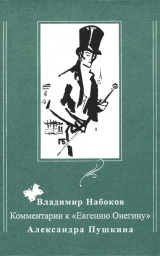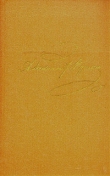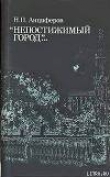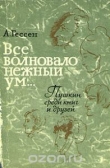
Текст книги "Комментарии к «Евгению Онегину» Александра Пушкина"
Автор книги: Владимир Набоков
Жанры:
Критика
,сообщить о нарушении
Текущая страница: 67 (всего у книги 67 страниц)
NOTES TO EUGENE ONEGIN
1. Written in Bessarabia. >>
2. Dandy [Eng.], a fop. >>
3. Hat à la Bolivar. >>
4. Well-known restaurateur. >>
5. A trait of chilled sentiment worthy of Childe Harold. The ballets of Mr. Didelot are full of liveliness of fancy and extraordinary charm. One of our romantic writers found in them much more poetry than in the whole of French literature. >>
6. “Tout le monde sut qu'il mettoit du blanc, et moi qui n'en croyois rien je commençai de le croire, non seulement par l'embellissement de son teint, et pour avoir trouvé des tasses de blanc sur sa toilette, mais sur ce qu'entrant un matin dans sa chambre, je le trouvai brossant ses ongles avec une petite vergette faite exprès, ouvrage qu'il continua fi+èrement devant moi. Je jugeai qu'un homme qui passe deux heures tous les matins à brosser ses ongles peut bien passer quelques instans à remplir de blanc les creux de sa peau.”
(Les Confessions de Jean-Jacques Rousseau.)
Grimm was ahead of his age: nowadays people all over enlightened Europe clean their nails with a special brush. >>
7. The whole of this ironical stanza is nothing but a subtle compliment to our fair compatriots. Thus Boileau, under the guise of disapprobation, eulogizes Louis XIV. Our ladies combine enlightenment with amiability, and strict purity of morals with the Oriental charm that so captivated Mme de Staël
(Dix ans d'exil). >>
8. Readers remember the charming description of a Petersburg night in Gnedich's idyl:
Here's night; but the golden stripes of the clouds do not darken.
Though starless and moonless, the whole horizon lights up.
Far out in the [Baltic] gulf one can see the silvery sails
4 Of hardly discernible ships that seem in the blue sky to float.
With a gloomless radiance the night sky is radiant,
And the crimson of sunset blends with the Orient's gold,
As if Aurora led forth in the wake of evening
8 Her rosy morn. This is the aureate season
When the power of night is usurped by the summer days;
When the foreigner's gaze is bewitched by the Northern sky
Where shade and ambrosial light form a magical union
12 Which never adorns the sky of the South:
A limpidity similar to the charms of a Northern maiden
Whose light-blue eyes and rose-colored cheeks
Are but slightly shaded by auburn curls undulating.
16 Now above the Neva and sumptuous Petropolis
You see eves without gloom and brief nights without shadow.
Now as soon as Philomel ends her midnight songs
She starts the songs that welcome the rise of the day.
20 But 'tis late; a coolness wafts on the Nevan tundras;
The dew has descended;...
Here's midnight; after sounding all evening with thousands of oars,
The Neva does not stir; town guests have dispersed;
24 Not a voice on the shore, not a ripple astream, all is still.
Alone now and then o'er the water a rumble runs from the bridges,
Or a long-drawn cry flies forth from a distant suburb
Where in the night one sentinel calls to another.
28 All sleeps.... >>
9. Not in dream the ardent poet
the benignant goddess sees
as he spends a sleepless night
4 leaning on the granite.
Muravyov, “To the Goddess of the Neva.” >>
10. Written in Odessa. >>
11. See the first edition of Eugene Onegin. >>
12. From the first part of Dneprovskaya Rusalka. >>
13. The most euphonious Greek names, such as, for instance, Agathon, Philetus, Theodora, Thecla, and so forth, are used with us only among the common people. >>
14. Grandison and Lovelace, the heroes of two famous novels. >>
15. “Si j'avais la folie de croire encore au bonheur, je le chercherais dans l'habitude.” Chateaubriand. >>
16. Poor Yorick! – Hamlet's exclamation over the skull of the fool (see Shakespeare and Sterne). >>
17. A misprint in the earlier edition [of the chapter] altered “homeward they fly” to “in winter they fly” (which did not make any sense whatsoever). Reviewers, not realizing this, saw an anachronism in the following stanzas. We venture to assert that, in our novel, the chronology has been worked out calendrically. >>
18. Julie Wolmar, the New Héloïse; Malek-Adhel, hero of a mediocre romance by Mme Cottin; Gustave de Linar, hero of a charming short novel by Baroness Krüdener. >>
19. The Vampyre, a short novel incorrectly attributed to Lord Byron; Melmoth, a work of genius, by Maturin; Jean Sbogar, the well-known romance by Charles Nodier. >>
20. Lasciate ogni speranza, voi ch'entrate. Our modest author has translated only the first part of the famous verse. >>
21. A periodical that used to be conducted by the late A. Izmaylov rather negligently. He once apologized in print to the public, saying that during the holidays he had “caroused.” >>
22. E. A. Baratïnski. >>
23. Reviewers wondered how one could call a simple peasant girl “maiden” when, a little further, genteel misses are called “young things.” >>
24. “This signifies,” remarks one of our critics, “that the urchins are skating.” Right. >>
25. In my rosy years
the poetical Ay
pleased me with its noisy foam,
4 with this simile of love,
or of frantic youth.
(“Epistle to L. P.”) >>
26. August Lafontaine, author of numerous family novels. >>
27. See “First Snow,” a poem by Prince Vyazemski. >>
28. See the descriptions of the Finnish winter in Baratïnski's “Eda.” >>
29. Tomcat calls Kit
to sleep in the stove nook.
The presage of a wedding; the first song foretells death. >>
30. In this manner one finds out the name of one's future fiancé. >>
31. Reviewers condemned the words hlop [clap], molv' [parle], and top [stamp] as indifferent neologisms. These words are fundamentally Russian. “Bova stepped out of the tent for some fresh air and heard in the open country the parle of man and the stamp of steed” (“The Tale of Bova the Prince”). Hlop and ship are used in plain-folk speech instead of hlópanie [clapping] and shipénie [hissing]:
“he let out a hiss of the snaky sort”
(Ancient Russian Poems).
One should not interfere with the freedom of our rich and beautiful language. >>
32. One of our critics, it would seem, finds in these lines an indecency incomprehensible to us. >>
33. Divinatory books in our country come out under the imprint of Martin Zadeck – a worthy person who never wrote divinatory books, as B. M. Fyodorov observes. >>
34. A parody of Lomonosov's well-known lines:
Aurora with a crimson hand
from morning stilly waters
leads forth with the sun after her, etc. >>
35. . . . . . . . . . . .Buyanov, my neighbor,
. . . . . . . . . . . . . . . . . . . . . . . . . . . .
called yesterday on me: mustache unshaven,
4 tousled, fluff-covered, wearing a peaked cap.
(The Dangerous Neighbor) >>
36. Our critics, faithful admirers of the fair sex, strongly blamed the indecorum of this verse. >>
37. Parisian restaurateur. >>
38. Griboedov's line. >>
39. A famous arms fabricator. >>
40. In the first edition Chapter Six ended in the following:
And you, young inspiration,
stir my imagination,
the slumber of the heart enliven,
8 into my nook more often fly,
let not a poet's soul grow cold,
callous, crust-dry,
and finally be turned to stone
12 in the World's deadening intoxication,
amidst the soulless proudlings,
amidst the brilliant fools,
XLVII
amidst the crafty, the fainthearted,
crazy, spoiled children,
villains both ludicrous and dull,
4 obtuse, caviling judges;
amidst devout coquettes;
amidst the voluntary lackeys;
amidst the daily modish scenes,
8 courtly, affectionate betrayals;
amidst hardhearted vanity's
cold verdicts;
amidst the vexing emptiness
12 of schemes, of thoughts and conversations;
in that slough where with you
I bathe, dear friends! >>
41. Lyovshin, author of numerous works on rural econ omy. >>
42. Our roads are for the eyes a garden:
trees, ditches, and a turfy bank;
much toil, much glory,
4 but, sad to say, no passage now and then.
The trees that stand like sentries
bring little profit to the travelers;
the road, you'll say, is fine,
8 but you'll recall the verse: “for passers-by!”
Driving in Russia is unhampered
on two occasions only:
when our McAdam – or McEve – winter —
12 accomplishes, crackling with wrath,
its devastating raid
and with ice's cast-iron armors roads
while powder snow betimes
16 as if with fluffy sand covers the tracks;
or when the fields are permeated
with such a torrid drought
that with eyes closed a fly
20 can ford a puddle.
(The Station, by Prince Vyazemski) >>
43. A simile borrowed from K., so well known for the playfulness of his fancy. K. related that, being one day sent as courier by Prince Potyomkin to the Empress, he drove so fast that his épée, one end of which stuck out of his carriage, rattled against the verstposts as along a palisade. >>
44. Rout [Eng.], an evening assembly without dances; means properly crowd [tolpa]. >>
FRAGMENTS OF ONEGIN'S JOURNEY
The last [Eighth] Chapter of Eugene Onegin was published [1832] separately with the following foreword:
“The dropped stanzas gave rise more than once to reprehension and gibes (no doubt most just and witty). The author candidly confesses that he omitted from his novel a whole chapter in which Onegin's journey across Russia was described. It depended upon him to designate this omitted chapter by means of dots or a numeral; but to avoid ambiguity he decided it would be better to mark as number eight, instead of nine, the last chapter of Eugene Onegin, and to sacrifice one of its closing stanzas [Eight: XLVIIIa]:
'Tis time: the pen for peace is asking
nine cantos I have written;
my boat upon the joyful shore
4 by the ninth billow is brought out.
Praise be to you, O nine Camenae, etc.
“P[avel] A[leksandrovich] Katenin (whom a fine poetic talent does not prevent from being also a subtle critic) observed to us that this exclusion, though perhaps advantageous to readers, is, however, detrimental to the plan of the entire work since, through this, the transition from Tatiana the provincial miss to Tatiana the grande dame becomes too unexpected and unexplained: an observation revealing the experienced artist. The author himself felt the justice of this but decided to leave out the chapter for reasons important to him but not to the public. Some fragments [XVI–XIX, l–10] have been published [Jan. 1, 1830, Lit. Gaz.] ; we insert them here, subjoining to them several other stanzas.”
E. [sic] Onegin drives from Moscow to Nizhni Novgorod:
[IX]
. . . . . . . . . . . . . . . . . . .
. . . . . . . . . . . . before him
Makariev bustlingly bestirs itself,
4 with its abundance seethes.
Here the Hindu brought pearls,
the European, spurious wines,
the breeder from the steppes
8 drove a herd of cast steeds,
the gamester brought his decks,
fistful of complaisant dice,
the landowner ripe daughters,
12 and daughterlings, the fashions of last year;
each bustles, lies enough for two,
and everywhere there's a mercantile spirit.
[X]
Ennui!...
Onegin fares to Astrahan [XI], and from there to the[Caucasus:
[XII]
He sees the wayward Térek
eroding its steep banks;
before him soars a stately eagle,
4 a deer stands, with bent horns;
the camel lies in the cliff's shade;
in meadows courses the Circassian's steed,
and round nomadic tents
8 the sheep of Kalmuks graze.
Afar [loom] the Caucasian masses.
The way to them is clear. War penetrated
beyond their natural divide,
12 across their perilous barriers.
The banks of the Arágva and Kurá
saw Russian tents.
[XIII]
Now, the eternal watchman of the waste,
Beshtú, compressed around by hills,
stands up, sharp-peaked,
4 and, showing green, Mashúk,
Mashúk, of healing streams dispenser;
around its magic brooks
a pallid swarm of patients presses,
8 the victims, some of martial honor,
some of the Piles, and some of Cypris.
In waves miraculous the sufferer
plans to make firm the thread of life.
12 To leave the wicked years' offenses at the bottom
[plans] the coquette, and the old man
[plans] to grow young – if only for a moment.
[XIV]
Onegin, nursing bitter meditations,
among their sorry tribe,
with a gaze of regret
4 looks at the smoking streams and muses,
bedimmed with rue: Why in the breast
am I not wounded by a bullet?
Why am I not a feeble oldster
8 like that poor farmer-general?
Why like a councilman from Tula
am I not lying paralyzed?
Why in the shoulder do I not
12 at least feel rheumatism? Ah, Lord,
I'm young, life is robust in me,
what have I to expect? Ennui, ennui!...
Onegin then visits the Tauris [Crimea]:
[XV]
land sacred unto the imagination:
there with Orestes argued Pylades;
there Mithridates stabbed himself;
12 there sang inspired Mickiéwicz
and in the midst of coastal cliffs
recalled his Lithuania.
[XVI]
Beauteous are you, shores of the Tauris,
when from the ship one sees you by the light
of morning Cypris, as I saw you
4 for the first time.
You showed yourselves to me in nuptial splendor.
Against a blue and limpid sky
shone the amassments of your mountains.
8 The pattern of valleys, trees, villages
was spread before me.
And there, among the small huts of the Tatars...
What ardency awoke in me!
12 With what magical yearnfulness
my flaming bosom was compressed!
But, Muse, forget the past!
[XVII]
Whatever feelings then lay hidden
within me – now they are no more:
they went or changed....
4 Peace unto you, turmoils of former years!
To me seemed needful at the time
deserts, the pearly rims of waves,
and the sea's rote, and piles of rocks,
8 and the ideal of “proud maid,”
and nameless pangs.
Other days, other dreams;
you have become subdued,
12 my springtime's high-flung fancies,
and unto my poetic goblet
I have admixed a lot of water.
[XVIII]
Needful to me are other pictures:
I like a sandy hillside slope,
before a small isba two rowans,
4 a wicket gate, a broken fence,
up in the sky gray clouds,
before the thrash barn heaps of straw,
and in the shelter of dense willows
8 a pond – the franchise of young ducks.
I'm fond now of the balalaika
and of the trepak's drunken stomping
before the threshold of the tavern;
12 now my ideal is a housewife,
my wishes, peace
and “pot of shchi but big myself.”
[XIX]
The other day, during a rainy spell,
as I had dropped into the cattle yard —
Fie! Prosy divagations,
4 the Flemish School's variegated dross!
Was I like that when I was blooming?
Say, Fountain of Bahchisaray!
Were such the thoughts that to my mind
8 your endless purl suggested
when silently in front of you
Zaréma I imagined?...
Midst the sumptuous deserted halls
12 after the lapse of three years, in my tracks
in the same region wandering, Onegin
remembered me.
[XX]
I lived then in dusty Odessa....
There for a long time skies are clear.
There, stirring, an abundant trade
4 sets up its sails.
There all exhales, diffuses Europe,
all glitters with the South, and brindles
with live variety.
8 The tongue of golden Italy
resounds along the gay street where
walks the proud Slav,
Frenchman, Spaniard, Armenian,
12 and Greek, and the heavy Moldavian,
and the son of Egyptian soil,
the retired Corsair, Moralí.
[XXI]
Odessa in sonorous verses
our friend Tumanski has described,
but at the time with partial eyes
4 he gazed at it.
Upon arriving, he, like a true poet,
went off to roam with his lorgnette
alone above the sea; and then
8 with an enchanting pen
he glorified the gardens of Odessa.
All right – but there, in point of fact,
is a bare steppe around;
12 in a few places recent labor
has forced young boughs on sultry days
to give compulsory shade.
[XXII]
But where, pray, was my rambling tale? “In dusty
Odessa,” I had said.
I might have said “in muddy
4 Odessa” – and indeed would not have lied there either.
For five-six weeks a year
Odessa, by the will of stormy Zeus,
is flooded, is stopped up,
8 is in thick mud immersed.
Some two feet deep all houses are embedded.
Only on stilts does a pedestrian
dare ford the street. Chariots and people
12 sink in, get stuck; and hitched to droshkies
the ox, horns bent, replaces
the debile steed.
[XXIII]
But the sledge-hammer breaks up stones already,
and with a ringing pavement soon
the salvaged city will be covered
4 as with an armor of forged steel.
However, in this moist Odessa
there is another grave deficiency,
of – what would you think? Water.
8 Grievous exertions are required....
So what? This is not a great sorrow!
Particularly since wine is
imported free of duty.
12 But then the Southern sun, but then the sea...
What more, friends, could you want?
Blest climes!
[XXIV]
Time was, no sooner did the sunrise gun
roar from the ship
than, down the steep shore running,
4 I would be on my way toward the sea.
Then, sitting with a glowing pipe,
enlivened by the briny wave,
like in his paradise a Moslem, coffee
8 with Oriental grounds I quaff.
I go out for a stroll. Already the benevolent
Casino's open: the clatter of cups
resounds there; on the balcony
12 the marker, half asleep, emerges
with a broom in his hands, and at the porch
two merchants have converged already.
[XXV]
Anon the square grows freaked [with people].
All is alive now; here and there
they run, on business or not busy;
4 however, more on businesses.
The child of Calculation and of Venture,
the merchant goes to glance at ensigns,
to find out – are the skies
8 sending to him known sails?
What new wares have
entered today in quarantine?
Have the casks of expected wines arrived?
12> And how's the plague, and where the conflagrations,
and is not there some famine, war,
or novelty of a like kind?
[XXVI]
But we, fellows without a sorrow,
among the careful merchants,
expected only oysters
4 from Tsargrad's shores.
What news of oysters? They have come. O glee!
Off flies gluttonous juventy
to swallow from their sea shells
8 the plump, live cloisterers,
slightly asperged with lemon.
Noise, arguments; light wine
onto the table from the cellars
12 by complaisant Automne[2]2
Или на вельмож, которые забыли, что бедный поэт может иметь столь же благородное происхождение, как и они (см. коммент. к «Путешествию Онегина», XXXII).
[Закрыть] is brought.
The hours fly by, and the grim bill
meantime invisibly augments.
[XXVII]
But the blue evening grows already darker.
Time to the opera we sped:
there 'tis the ravishing Rossini,
4 darling of Europe, Orpheus.
To severe criticism not harking, he
is ever selfsame, ever new;
he pours out melodies, they effervesce,
8 they flow, they burn
like youthful kisses, all
in mollitude, in flames of love,
like the stream and the golden spurtles of Ay
12 starting to fizz; but, gentlemen,
is it permitted to compare
do-re-mi-sol to wine?
[XXVIII]
And does that sum up the enchantments there?
And what about the explorative lorgnette?
And the assignments in the wings?
4 The prima donna? The ballet?
And the loge where, in beauty shining,
a trader's young wife, vain
and languorous,
8 is by a crowd of thralls surrounded?
She lists and does not list
the cavatina, the entreaties,
the banter blent halfwise with flattery,
12 while in a corner naps behind her
her husband; wakes up to cry “Fuora!”; yawns,
and snores again.
[XXIX]
There thunders the finale. The house empties;
with noise the outfall hastes;
the crowd onto the square
4 runs by the gleam of lamps and stars.
The sons of fortunate Ausonia hum
a playful tune
involuntarily retained —
8 while we roar the recitative.
But it is late. Sleeps quietly
Odessa; and breathless and warm
is the mute night. The moon has risen,
12 a veil, diaphanously light,
enfolds the sky. All's silent;
only the Black Sea sounds.
[XXX]
And so I lived then in Odessa.








